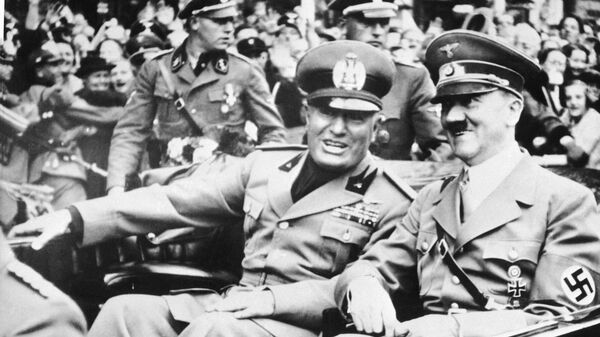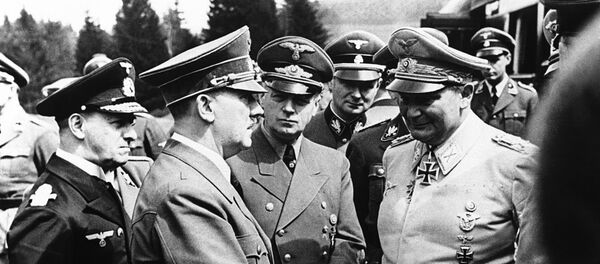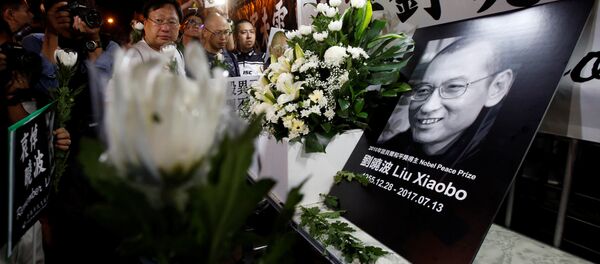Much of the process surrounding Nobel Prizes is shrouded in mystery, hence the public's surprise when, Bob Dylan received the Nobel Prize for Literature last year: his persona was not rotated by betting agencies and was hardly ever mentioned by experts. According to the Nobel Committee's self-imposed ramifications, there is also a 50-years confidentiality rule about previous nominees.
However, some of the historical candidates have been made public and cannot but raise eyebrows.
For many people across the globe, Adolf Hitler is the personification of evil, being arguably the most hated dictator with millions of human lives on his conscience.
Chamberlain believed that a bigger war had thus been prevented and therefore proudly pronounced the winged words "I believe it is peace for our time" from 10 Downing Street. Subsequently, Chamberlain was nominated for the 1939 peace prize by several people.
Neville Chamberlain signing Munich agreement today 1938: #Getty pic.twitter.com/BMeWgZQ5xN
— Michael Beschloss (@BeschlossDC) 29 сентября 2017 г.
The praise that followed caused many to react, including Swedish Social Democrat MP Erik Brandt.
"He thought that if the world were to laud Chamberlain for asking Adolf Hitler not to start a war, then the prize could be just as well given to Hitler himself for not starting the war," Gustav Källstrand, first intendant at the Nobel Museum, explained to the Finnish daily Hufvudstadsbladet.
Brandt meant the nomination as ironic, but his biting sarcasm did not particularly appeal to the public.
"It was received quite badly, and he himself later withdrew the nomination, was forced to provide an explanation that it was not seriously meant," Källstrand explained.
Although the nomination was withdrawn, it was not returned from history.
According to Gustav Källstrand, however, it is not really surprising that there have been some peculiar nominations over the years.
"In the other prizes, people are asked to contribute nominations. This is not done indiscriminately, but instead invitations are sent to individual researchers, universities, science academies and the like. In case of the peace prize, it is a much more open process," Källstrand argued.
#Benito #Mussolini and Fascist organization #Fascist #Blackshirts during the #March on #Rome pic.twitter.com/SOEeXQQlOB
— Historystack (@historystack) 21 июля 2017 г.
For the peace prize, MPs from across the world, former prize winners and researchers contribute nominations more freely.
"In order to be nominated, say, for the physics prize, one has to be chosen by an expert. In the case of a peace prize, a nomination really means nothing, because of the sheer number of the nominees," Källstrand contended.
Perhaps ironically, even Hitler's arch-rival Joseph Stalin was nominated, not once but twice, for his efforts in ending World War II. His first nomination was in 1945, by the Norwegian historian and former Foreign Minister Halvdan Koht and three years later by Czech Professor Wladislav Rieger, yet he enjoyed little success in receiving the Nobel Prize.
Joseph Stalin, Harry Truman and Winston Churchill at the Potsdam Conference, 1945. pic.twitter.com/wHskmkSXkR
— History In Pictures (@HistoryInPics) 14 июня 2014 г.
The winner of the 2017 Nobel Peace Prize will be announced in Oslo on October 6, selected by a panel appointed by the Norwegian parliament from a total of 318 both rumored and confirmed candidates, including Donald Trump.




